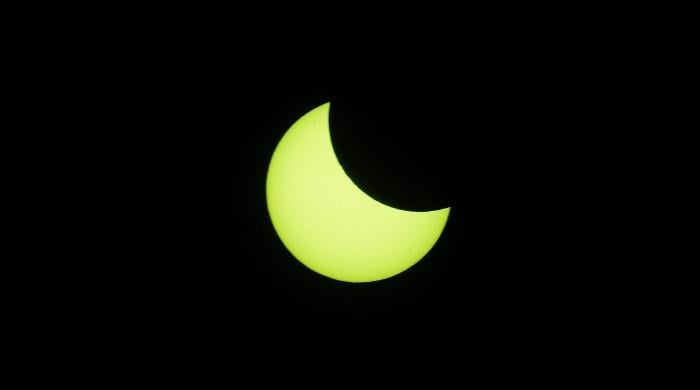Sky watchers, take note: a partial solar eclipse will cross skies overnight on 21-22 September, the National Aeronautics and Space Administration has announced.
However, the rare celestial event won’t be visible in the United States — but those in Australia, Antarctica, and across the Pacific and Atlantic Oceans will get front-row seats.
Pakistan, however, will miss out. The Climate Data Processing Centre of the Pakistan Meteorological Department (PMD) says the eclipse will begin at 10:30pm (PST) on 21 September, reach its peak at 12:42am, and wrap up by 2:54am — but the spectacle will remain invisible from anywhere in the country.
According to USA Today, Nasa explains that a partial solar eclipse happens when the Moon slides between the Sun and Earth without perfect alignment, leaving a glowing crescent of the Sun in view.
This will be the second big sky event this month — the first was a total lunar eclipse on September 7-8. And there’s more: the September equinox follows just a day later, on September 22, when day and night are nearly equal worldwide.
Looking ahead, Nasa says the next total solar eclipse visible in parts of North America will happen on August 12, 2026, crossing Greenland, Iceland, Spain, Russia and a small corner of Portugal.
A partial eclipse on that date will be visible across North America, Europe, Africa, the Atlantic, Arctic and Pacific Oceans. Plus, there’s an annular eclipse coming on February 17, 2026, visible in parts of Antarctica, with a partial eclipse across Africa, South America, and several oceans.
Nasa has one important reminder: never look directly at the Sun without proper eclipse glasses or filters. “Viewing any part of the bright Sun through a camera lens, binoculars, or a telescope without a special-purpose solar filter… will instantly cause severe eye injury,” the agency warns.


